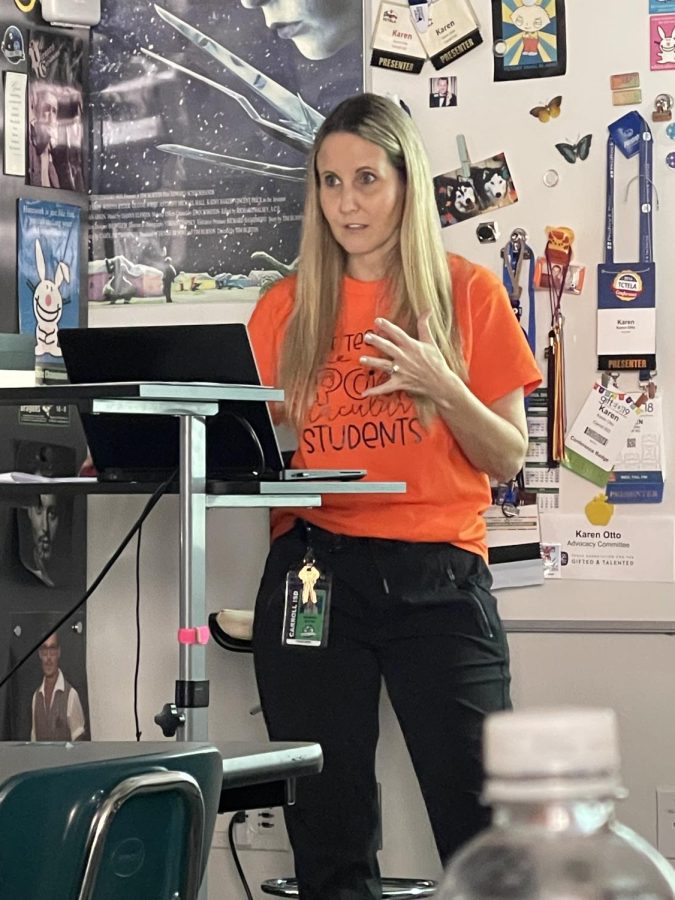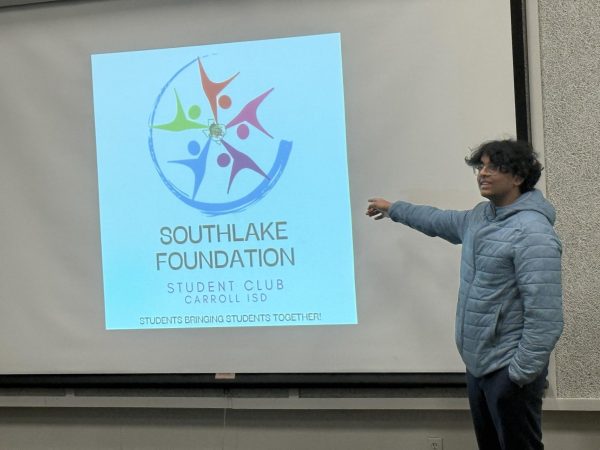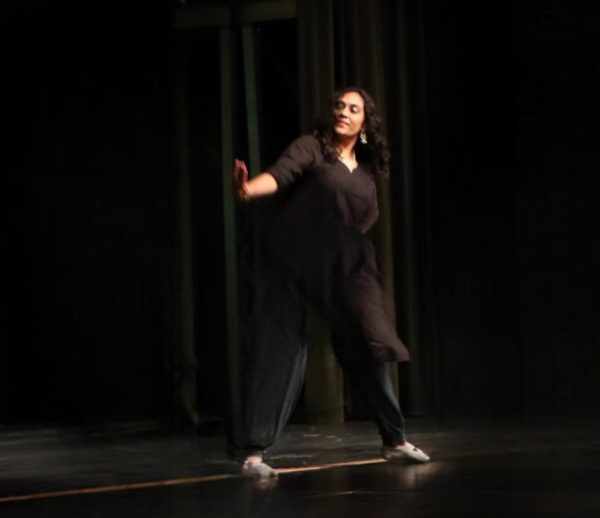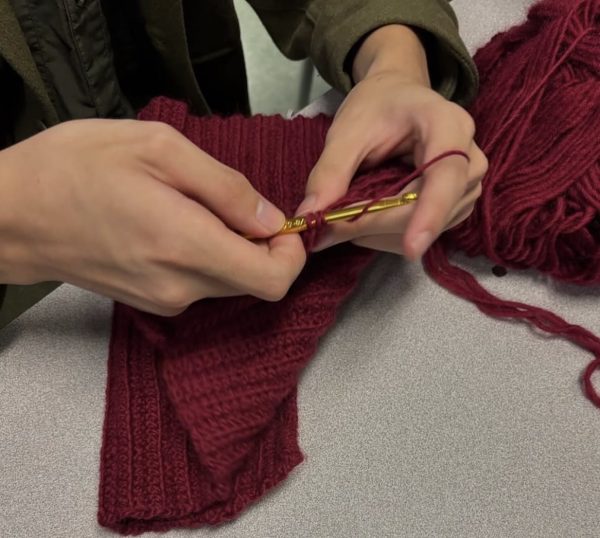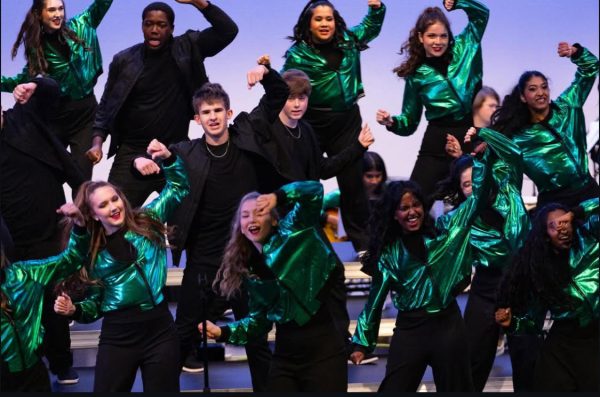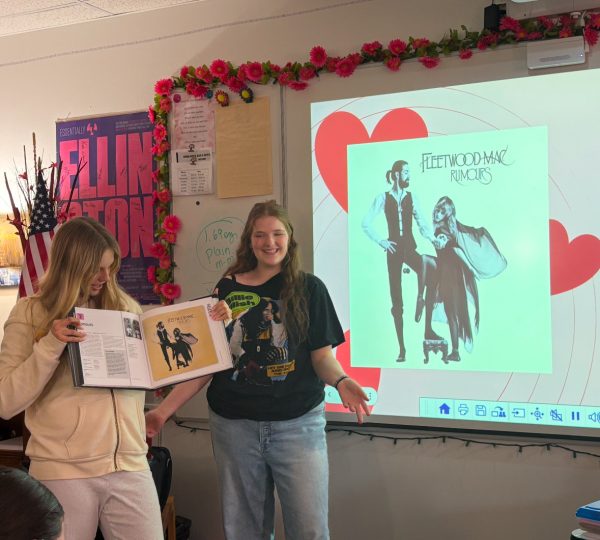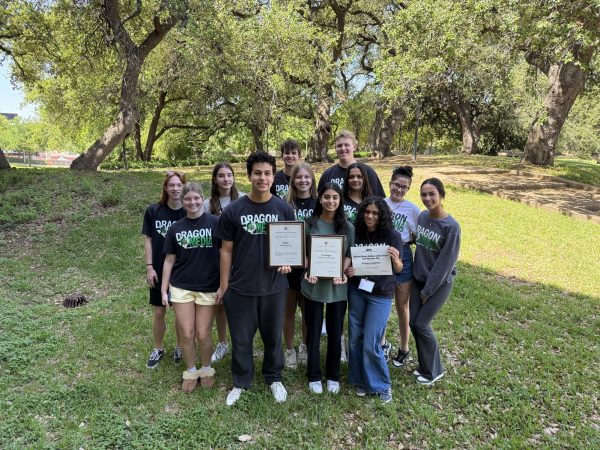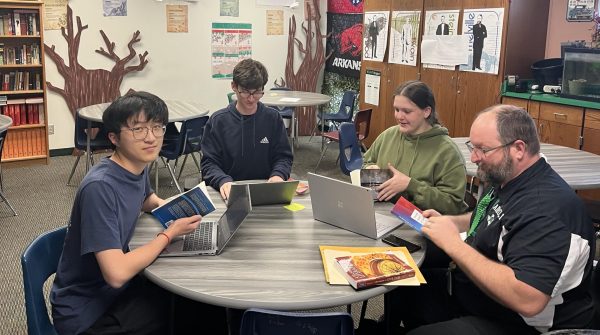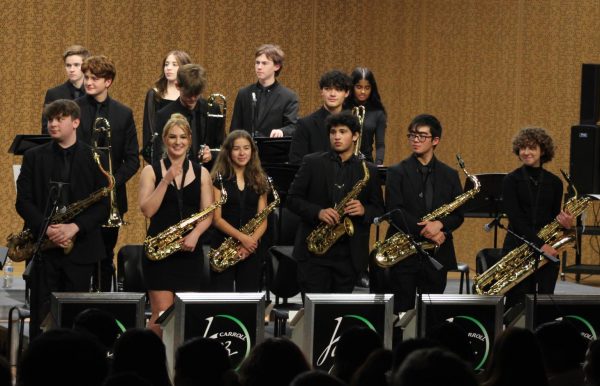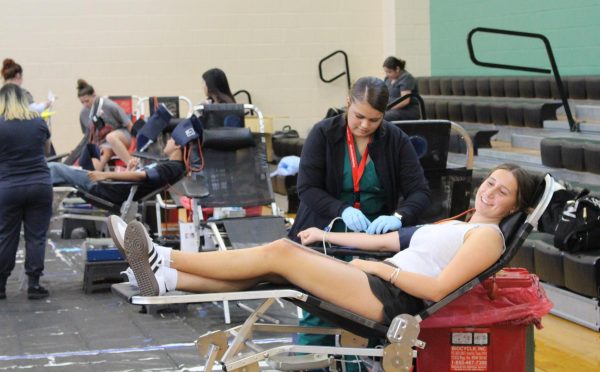Teacher Feature – Meet Karen Otto
Dr. Karen Otto is the GT English II teacher at Carroll High School.
Q: So just like to start off, what’s been your general experience teaching?
A: I’ve been here 16 years, and it’s been a really good experience. If it wasn’t, I wouldn’t stay here. I love the students and the support from the community.
Q: Something unique about you is that you’re one of the only teachers here that have a Ph.D. So, what’s your Ph.D. in? What was the process of getting your Ph.D.? And how did that affect your teaching life?
A: Rhetoric and Composition, which is basically writing for analysis. It was five years of [torture], to be honest. But, it’s actually the best professional development I’ve ever had. Just because you’re looking at the research behind, like, how to teach writing and grammar instruction. So you not only get the research from people who are seasoned teachers in the classroom, but you also get the like, true quantitative/qualitative data, method type research.
Q: Do you feel that has helped you teach your students?
A: Well, I think, like, applying the research I learned to the class I teach. Every assignment, I have the research in mind. You know, maybe I want to teach it this way, but is this really what the research says is best practice for teaching writing? Or, you know, literature? How do you really get kids engaged? You know, what is the actual research on that, not just what I feel, or I want?
Q: And you said getting that Ph.D. was [torture], so what was the hardest part of that process?
A: I think being a perfectionist, trying to be a good teacher, and a good daughter, and a good wife, and a good friend, and then being a good student, was really hard. Just to balance all that. And the amount of research and reading and writing that you have to do, it was overwhelming.
Q: How do you feel like your teacher-work-life balance has been?
A: I mean, the older I get, and the more years I have, I definitely feel like I am better at saying no to things. I still have the teacher guilt of that, you know, because most teachers want to be everything for every kid all the time. So, there is, you know, guilt when you say no, I can’t sponsor the plant club. Because I don’t know anything about plants. But I’m getting better.
Q: You have to put on like, the mean teacher hat sometimes, like, how does that feel?
A: That’s not comfortable. That’s not my personality to be, you know, like, authoritarian kind of, you know, I’m not like a, you know, scream at kids kind of teacher. But, you know, its consequences are necessary. And one of the hardest things about being a teacher is being consistent. Even though you really like a student and you, you know, you want to cut him a break. That would mean that you have to cut everyone a break. And so it’s not just a decision for that kid a lot of times, which is really tough.
Q: Is that something that adds to the pressure of daily teaching, or is it more of like, you feel like that’s something you only have to do once in a while?
A: Oh, no, that’s like every decision you know, you have to decide okay, what’s the best tactic to get the kids to do what they need to do? Is that going to be it’s going to be mean Otto, is that going to be like funny yet mean Otto is you know, what’s the kind of perfect, you know, solution or kind of mix of personality traits.
Q: And your personality. I feel like everyone knows your personality, like everyone knows who you are. How do you make sure that you have a positive impact on a student when you’re teaching?
A: Yeah, I always try to lead and teach with my heart. I mean, you know, that’s really important to me that kids know that. Like, I love what I do. And I love them even when I’m being like, mean, Otto. I guess, people know me because I’m weird. That’s a good question.
Q: You know, something that a lot of people struggle with, in like, English classes in general, but especially this kind of higher level English is writing like new types of essays. So how do you deal with students who aren’t learning how to write at the same pace as other people?
A: Well, something you know, that I’ve learned just from 25 years in the classroom, and also just my Ph.D. work is that you can’t ask kids to write, you know, you can’t come out of the gate and try to do some college AP writing, or they’re going to shut down. So I really, really try to make things relevant. And kind of fun. Like right now, Taylor Swift just dropped her new album. So I’m working on a rhetorical analysis of some of her songs and other [fun units]. You know, so I think if you sneak in writing, you know, kind of do some fun things, but you’re still teaching the skills, then you can kind of be like, okay, and, you know, models of, here’s kind of what I’m looking for. Lots of notes, lots of conferencing, that kind of thing.
Q: How do you kind of motivate students who have trouble in this higher level class, especially after last year where a lot of us kind of lost our teacher, middle of the year?
A: I don’t know if I’m, like, succeeding in that area. I might go-to is just always making students feel at home, I guess just, you know, humor and being silly and making it fun. That’s always been my go-to, you know, like sneak in the learning.
Q: So what do you think is your favorite assignment for kids that aren’t as experienced yet? What’s your favorite assignment to help them learn?
A: Probably, the synthesis essay on dating, where I made all the sources myself, like a snap map and text messages. And that’s probably my favorite. I have a couple of like, mystery murder mystery things that kids love. Amazon review ads are fun. I mean, anything where I feel like I would want to be in my own class, as a student doing that is always what assignments that actually go really well.
Q: What’s your least favorite part of the subject to teach?
A: This is not going to be a surprise to anyone who’s had me, but which is weird considering I, you know, I went to college a lot [for college and my Ph.D.]. I traditionally don’t like formulaic writing, like AP cell essays, thematic essays, you know, which I try to get out of the way early, because I just, it just, it’s that school writing, which to me is not a real genre or mode of writing. Is this something schools created? Like the five-paragraph essay.
Q: So, you’re more likely to encourage more creative writing?
A: Well, I would say it would be more real-world writing. Like most of my kids, the students aren’t going to be English majors. God help them as they are. But I mean, that’s maybe like two years, three years. So you know, most kids go into engineering, maybe business, medical school, so they’re not going to be writing literary analysis essays. So I mean, what skills can I teach that transfer into the real world? That’s really always been my focus, even in my studies.
Q: Just to wrap things up, is there anything that you want to add about teaching or just in general?
A: Teaching right now is tough. The last couple of years have been the hardest that I’ve ever had just, you know, you have COVID. And you have just, you know, the climate outside of the classroom walls that can be contentious. And so it’s, it’s really hard sometimes just to like, go in your cave of the classroom, and do what you know is the right thing to do. Because someone’s going to have an opinion about that. And they’re not going to like it. And then you worry that you may not have a job or someone’s going to be mad and you’re going to, you know, have to go and talk to you know, the superintendent, so there’s always kind of this uncertainty, and unsafe feeling.

Pragnya Kaginele is a senior at Carroll Senior High School in her fourth and final year of Dragon Media and is currently the editor-in-chief of The Dragon...
